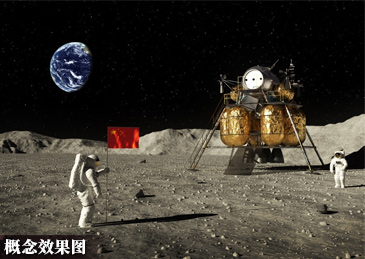-
外媒:习近平称中国不会落入中等收入陷阱
关键字: 习近平伯格鲁恩研究院21世纪全球委员会中等收入陷阱改革开放综合改革去年11月,在党的十八届三中全会召开前夕,习近平在人民大会堂会见了美国智库伯格鲁恩研究院21世纪全球委员会代表团、墨西哥前总统埃内斯托·柴迪洛、英国前首相戈登·布朗、新加坡外交家马凯硕和澳大利亚前总理保尔·基廷等人。习近平就中国如何避免中等收入陷阱、中国未来的发展等问题做出了回答。观察者网翻译了习近平的回答摘录。
“中国不会落入中等收入陷阱”
在我看来,中国不会落入中等收入陷阱,因为我们的内需增长依旧强劲。
中国已经成为世界第二大经济体。但我们依然充分意识到,中国还是发展中国家,还处于社会主义初级阶段。我们的人均GDP仅约6000美元,而根据联合国的贫困标准,即每天1美元,中国还有1亿贫困人口。因此中国实现现代化还有很长的路要走。
但我们相信目标会实现,因为中国在未来10至20年都将维持高速增长的势头。
以中国2013年的增长为例。2013年上半年,中国经济增长率为7.6%;第三季度这一数字为7.8%。
所以未来中国要保持怎样的增长率?
如前所述,我们第一个百年目标是到2021年之前,将2010年的人均GDP翻一番。这意味着中国的经济总量将达到15万亿美元。为了实现这个目标,未来十年保持7%的经济增长率足够了。

习近平同墨西哥前总统内斯托·柴迪洛握手
我想实现这样的增长率不是问题——即使不采取更多刺激措施。
中国如今处于快速城镇化,信息化、工业化和农业现代化融合的阶段。因此,我相信仅内需活力就足以维持这样的经济增长率。
未来几年,随着几亿农民工进城,中国的年均城镇化率将达到1%。今年我们将为大约1200万人创造了工作岗位。
几十年来,大量的农民在城市定居、工作,但中国没有贫民窟,这是因为我们能够保持增长并提供工作岗位。
我们正在推进综合改革。今天,我们不可能在单个板块或领域推进改革。任何改革都会对多个板块产生影响,因此我们的综合改革议程将包括经济、社会、文化和生态领域。我们还将致力于党的建设。
“坚持改革开放100年不动摇”
邓小平同志曾说,中国必须坚持改革开放100年不动摇。从那时算起,也仅仅过了几十年。我曾经说过,中国的改革开放永无止境。
说到改革开放,我认为这是中国唯一的选择。中国越发展,就越开放。关起门来不可能发展。在中国历史上,曾经有过闭关锁国的时期,比如明代和清代,直至国门被武力打开。但现在,闭关锁国是不可能的。
我们愿意学习别人的先进经验。我相信,过去30年取得的成就很大程度上是因为乐于学习其他国家和地区先进的思想、见解和经验。
我们既学习发达国家,也学习发展中国家;既学习大型经济体,也学习中小型经济体。比如,我认为在改革开放早期,我们从新加坡的治理方式上获益良多。
我们知道每种政体都有自己的优势和劣势。弥补自己劣势的唯一途径是向别人学习。我们将继续保持开放和包容,向别人学习先进经验。
(观察者网 王杨 摘译自伯格鲁恩研究院网站)
翻页为英文原文:
THE MOST POWERFUL LEADER IN THE WORLD
A conversation with Chinese President Xi Jinping
President Xi Jinping talking with members of the 21st Century Council at the Great Hall of the People in Beijing.
Members of the Berggruen Institute’s 21st Century Council sat down for a wide-ranging conversation in November with China’s President, Xi Jinping, at the Great Hall of the People in Beijing. The group also met Premier Li Keqiang, top generals of the People’s Liberation Army and leaders of the National People’s Congress as well as governors and party secretaries from Zhejiang, Guangdong and Yunnan provinces.
Following are edited excerpts of the discussion with President Xi who responded to questions from the group, including from Mexico’s former president Ernesto Zedillo on how China could avoid the “middle income trap” as well as from former British prime minister Gordon Brown, Singapore’s Kishore Mahbubani and Australia’s former prime minister Paul Keating on China’s international role and responsibilities.
•Opening remarks by Xi Jinping
I appreciate that you have traveled long distances to come to China to understand this country. As we Chinese say, one needs to read ten thousand books and journey ten thousand miles to gain understanding. Since China is an ancient civlization with over 5000 years of history sometimes we ourselves don’t even know where to start.
There is a famous poem about Lushan mountain. The poem says that when you view it from different directions, you get a different impression of how the mountain looks. And maybe my own perspective has limitations. As the poem also says, you won’t have the whole picture of the mountain if you yourself are on it.
But let me try to give you my view from the perspective as president of this big country.
What are the primary goals for China? We summarize them as two centenary goals: First, we aim to double the 2010 level of GDP per capita income and build a moderately prosperous society by 2021 when the Communist Party of China marks its 100th anniversary.
The second goal is to turn China into an all-around modern and socially advanced country by the middle of the century when the People’s Republic marks its centenary.
When I was selected the general secretary of the Communist Party of China I put forward the idea of the “Chinese Dream.” The Chinese Dream is about the renewal and rejuvenation of the Chinese nation and civilization and its positive contribution to global peace and development. At the same time the Chinese Dream is also about creating an opportunity for every person to achieve his or her own dream.
China’s success over recent decades testifies to the fact that we have identified the right path of development. As the ancient Chinese philosopher and poet Qu Yuan said, the journey is long but I will continue to search for the right way and then tread along that path with unbending perseverance.
Since the Opium War over 170 years ago we have been seeking a way to renew our country. Over 100 years ago (at the founding of the Chinese Republic in 1912) we first put forward the idea of revitalizing the Chinese nation. And since then we billion Chinese have been working hard to find the right path of development. And now we have found it.
We now have the confidence in our own theory, our system and our own path based on our national conditions. We believe that as long as we continue on this right path of development, we will be able to finally attain the goal of rejuvenation we have long sought.
Never before have the Chinese people been so close to the realization of the dream as we are today.
•On the sustainability of China’s development model and avoiding the “middle income trap” where wages rise, competitiveness falls and growth stalls.
Personally, I don’t believe we will fall into the “middle income trap” because our internal growth remains dynamic.
China has become the second largest economy in the world. But still we are fully aware of the fact that we are a developing country at the primary stage of building socialism. Our per capita GDP is just about $6,000, and by the UN standard of poverty, which is $1 per day, there are still 100 million Chinese people living in poverty. So we still have a long way to go to turn China into a modern country.
There are good reasons to conclude that we will get there since China will continue to sustain its momentum for the next 10-20 years.
Take China’s economic development in 2013 as an example. In the first half of the year, China’s economy grew at a rate of 7.6 per cent; the GDP growth for the third quarter was 7.8%.
So at what kind of speed should China grow in the years to come?
As I mentioned, our first centenary goal is to double the 2010 per capita GDP by 2021. That means that China’s total economy would reach $15 trillion. To achieve that goal, 7% GDP growth rate would be enough over the next decade.
I don’t think to achieve that rate of growth is a problem for us – even without any further stimulus measures,
China is now at a stage of rapid development of urbanization, integration of information technology, industrialization and agricultural modernization. Therefore, as I said, I believe the internal dynamism alone will be able to sustain such a rate of economic growth.
For years to come, there will be 1 per cent increase in China’s urbanization rate every year as several hundred million Chinese farmers will migrate into the cities. And this year we will create job opportunities for about 12 million people.
For decades now already, large numbers of farmers have come to settle and work in the cities, but there are no urban slums in China precisely because we have been able to maintain growth and provide job opportunities.
[As this group gathers here in Beijing], we are launching a plan of comprehensive reform. Nowadays, it is not possible for us to pursue a reform in any single sector or particular realm. Any reform will have an impact across various sectors and so our comprehensive reform agenda will involve steps in economic, social, cultural and ecological fields. We will also focus on Party building.
(Editor’s note: Just after our meeting, the Third Plenum announced a broad array of reforms. The new policies promise to end labor camps, ease the one-child policy and migrant-residency requirement in cities, grant property rights to farmers, and open up many new areas to a “decisive” role for the market. A new national security council was also formed under President Xi to give him more direct control over foreign affairs and domestic security.)
Deng Xiaoping once said China must pursue and continue the reform and opening up for at least 100 years. Since the time he made those remarks, only decades have passed. I have said that there is no end to China’s reform endeavor.
Talking about opening up, I believe it is now the only option for China. The more China develops the more it must open wider to the outside. It is impossible for China to develop with its doors closed. In China’s history, there were times when the door was closed – for example during the Ming and Qing Dynasties and also when it was imposed from the outside. But now closing the door is no longer possible.
“The more China develops the more it must open wider to the outside. It is impossible for China to develop with its doors closed.”
We have been most ready to draw upon good experience of others. I believe to a large extent the reason we have achieved so much in the past 30 years is that we have been open to learning from the advanced thinking, ideas and experience of other countries and regions.
We learn both from developing countries and developed countries, big economies and modest-sized economies. For example, I believe we learned a lot from the government of Singapore in the early days of China’s reform and opening up.
We know that each and every individual system has its own advantages and disadvantages. The only way to make up for your own shortcomings is to learn from others. And we will continue to be most open-minded and inclusive, drawing upon the good experience from others in the future.
•On China’s Global Role and Responsibilities
On one hand I believe China needs to continue to run its own affairs well. We need to achieve the right balance in our own development and do more to tackle the disparities that still exist in the country.
At the same time we recognize that as China gets bigger in terms of its economy, we need to take on greater international responsibility. China is ready to shoulder more international obligations and play a more proactive role in international affairs as well as the reform of the international system.
“China is ready to shoulder more international obligations and play a more proactive role in international affairs as well as the reform of the international system."
The argument that strong countries are bound to seek hegemony does not apply to China. This is not in the DNA of this country given our long historical and cultural background. Also China fully understands that we need a peaceful and stable internal and external environment to develop ourselves.
We all to need to work together to avoid the Thucydides trap -- destructive tensions between an emerging power and established powers, or between established powers themselves.
Our aim is to foster a new model of major country relations in three aspects.
First is a no confrontational or zero-sum mentality. Second is mutual respect for other’s path of development and cultural heritage. Third, to seek common ground on issues of common interests in pursuit of win-win progress. As long as the major countries follow these principles, no war will break out in the world.
“We all to need to work together to avoid the so-called Thucydides trap -- destructive tensions between an emerging power and established powers, or between established powers themselves. “
In multilateral organizations, China contributes a great share and observes the rules, keeping its actions within the norms governing international relations. This is what China has been doing in the G20, The Asia Pacific Economic Cooperation (APEC), The United Nations Security Council, the Shanghai Cooperative Organization and the (Brazil, Russia, India, China) BRICS mechanism. And we wish we could do even more in the future.
Maybe I have talked too much and too long. I hope I have answered the questions you raised in presenting my personal perspective and line of thinking.
--------------------------------------------------------------------------------------------------------------
*Others in the Council’s group meeting with President Xi included Francis Fukuyama, Reid Hoffman, Eric Schmidt, Jared Cohen, Arianna Huffington, Kevin Rudd, Mario Monti, Shaukat Aziz, Juan Luis Cebrian, Nathan Gardels, Fareed Zakaria, Gideon Rachman, Nouriel Roubini, Stephen Schwarzman, Dawn Nakagawa, George Yeo, David Bonderman, Kishore Mahbubani, Paul Keating, Ernesto Zedillo, Felipe Gonzalez, Gordon Brown, Ronnie Chan, Pierre Omidyar, Zheng Bijian, Nicolas Berggruen, Ricardo Lagos, Dambisa Moyo, Aleksei Kudrin, Alain Minc, Wu Jianmin, Feng Wei, and Fred Hu.
- 请支持独立网站,转发请注明本文链接:
- 责任编辑:王杨
-
 “中国40天没从美国进口LNG,澳企却拿下大单” 评论 102
“中国40天没从美国进口LNG,澳企却拿下大单” 评论 102 英法威胁俄罗斯:小心点,我们还有很多牌可打 评论 356
英法威胁俄罗斯:小心点,我们还有很多牌可打 评论 356 想得挺美:收中国的钱,反哺美国“冠军” 评论 260
想得挺美:收中国的钱,反哺美国“冠军” 评论 260 多家美企施压中国供应商降价,“中方不会容忍” 评论 402最新闻 Hot
多家美企施压中国供应商降价,“中方不会容忍” 评论 402最新闻 Hot-

“中国发现NASA反应堆缺陷,探月竞赛天平倾斜了”
-

特朗普关税无力阻挡?“中国车拥有我想要的一切”
-

“中国40天没从美国进口LNG,澳企却拿下大单”
-

“我父亲为你父亲举办了英雄的葬礼,而你却让他进了监狱”
-

这个南太岛国从加拿大转向中国,反对派炸了...
-

加拿大总理首访,选了英法两个“可靠”盟国
-

哄特朗普改口,共和党人故意说:这么做会让中国变富…
-

俄军官:已控制库尔斯克州几乎所有定居点
-

SpaceX确认龙飞船已脱离国际空间站:将带回两名滞留宇航员
-

日媒紧盯:中方又要出手了?
-

英法威胁俄罗斯:小心点,我们还有很多牌可打
-

想买中国钴又不想交美国税,“这样总行了吧”
-

特朗普要承认克里米亚为俄领土?
-

“美国喉舌”遭“断粮”后找欧盟,不料…
-

事关DeepSeek,美商务部邮件曝光
-

瑞典:欧盟不救助,中国就要掌控了
-
Copyright © 2014-2024 观察者 All rights reserved。
沪ICP备10213822号-2 互联网新闻信息服务许可证:31220170001
网登网视备(沪)02020000041-1号 互联网宗教信息服务许可证:沪(2024)0000009
广播电视节目制作经营许可证:(沪)字第03952号
增值电信业务经营许可证:沪B2-20210968 违法及不良信息举报电话:021-62376571
![]() 沪公网安备 31010502000027号
沪公网安备 31010502000027号
![]() 中国互联网举报中心
中国互联网举报中心
 上海市互联网违法与不良信息举报中心
上海市互联网违法与不良信息举报中心

 观察员
观察员


